The check engine light is always worrying to see on the dashboard, especially when you're already running low on fuel. We've looked into this issue and have information to share about why the engine light comes on when fuel is low and what you should do when it happens.
When the check engine light comes on when the fuel gauge is low, it typically means that the engine is having issues picking up the fuel from the bottom of the tank. When this happens, you should get your car checked for fuel filter replacement or to see if the fuel gauge is working correctly. You can also get your car scanned if it is running in a lean condition or if the fuel pump is working well.
There may be other issues that cause your check engine light to come on, especially when the gas is low. Fortunately, we can help you narrow down possible gas issues that are causing the light to come on and have tips on what you should do. Keep reading, because we'll also talk about other instances when the engine light comes on and possible ways to fix them.
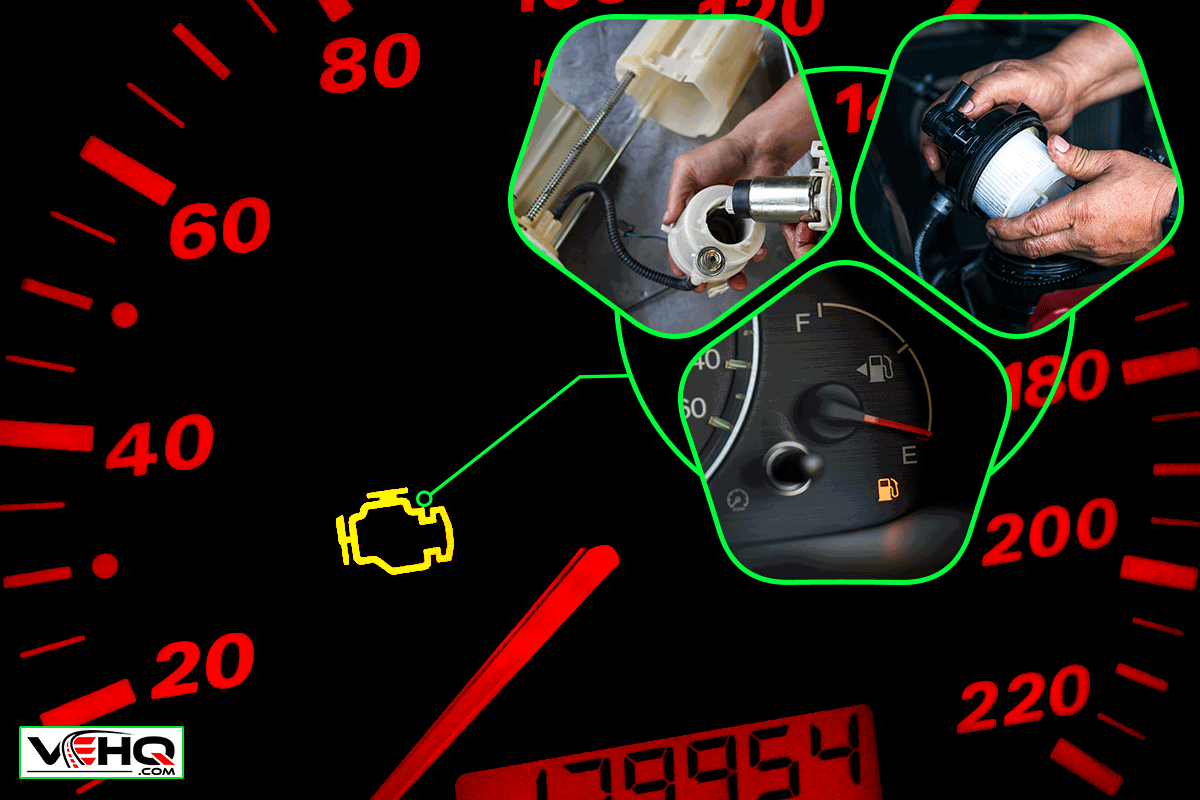
Check Engine Light Comes On When Gas Is Low — What To Do?
When driving, it is very important to be aware of the dashboard lights and alerts that let you know if the car is having possible issues. One of the alert lights that shouldn't be ignored is the check engine light, because it is meant to prevent you from damaging your vehicle's engine. Sometimes you will see this light flashing or lit solid.
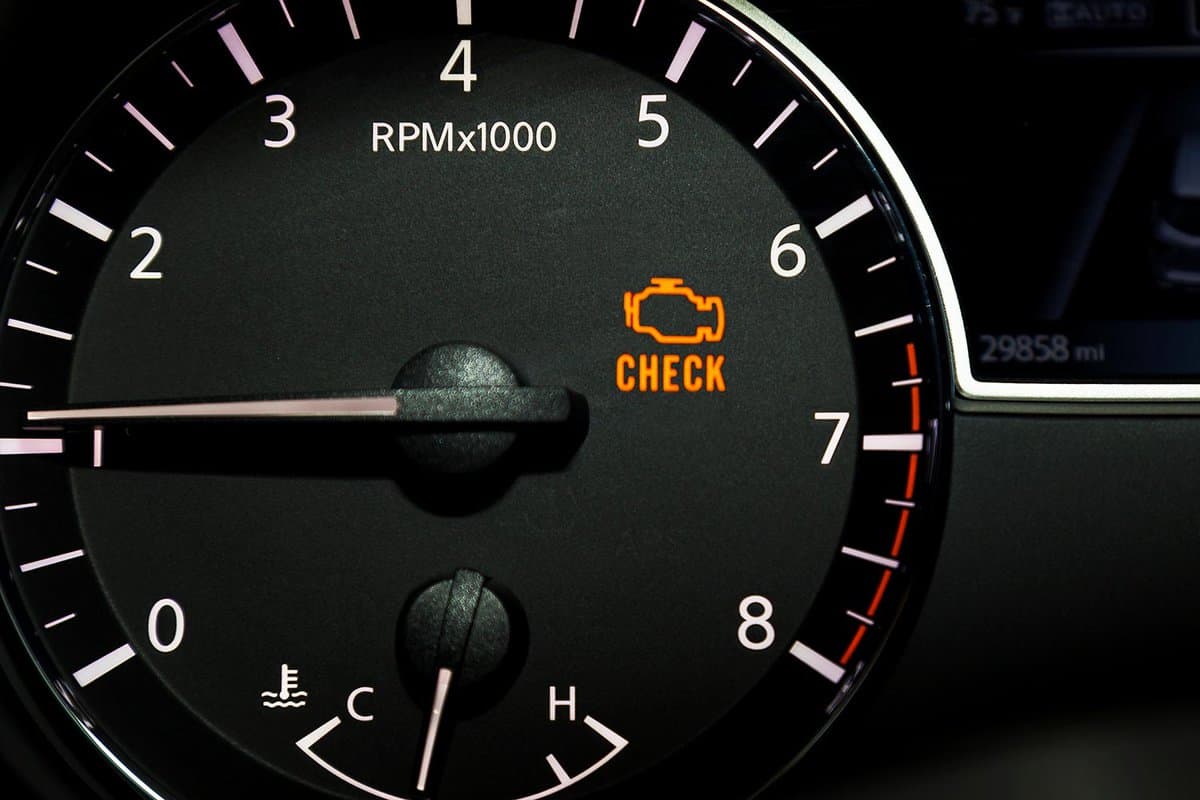
If you've been running your car with low fuel, you might have seen the check engine light come on while driving. On most occasions, the check engine light will turn off when you've filled up the tank. However, it may come back on when the fuel gauge falls to 1/4 of your tank or lower.
When the gas in the tank falls to a very low level, the engine often registers this as running too "lean" or that there is more oxygen than gas filling the tank. By this time, the fuel pump of your vehicle might be having trouble picking up the fuel from the bottom of the tank. As a result, the check engine light is lit.
When this happens, there are several issues you might want to consider getting checked on your vehicle. This is to make sure that the engine isn't just sending misfired signals that cause the check engine light to come on. There might also be items that need to be replaced in your engine.
Have the fuel filter checked
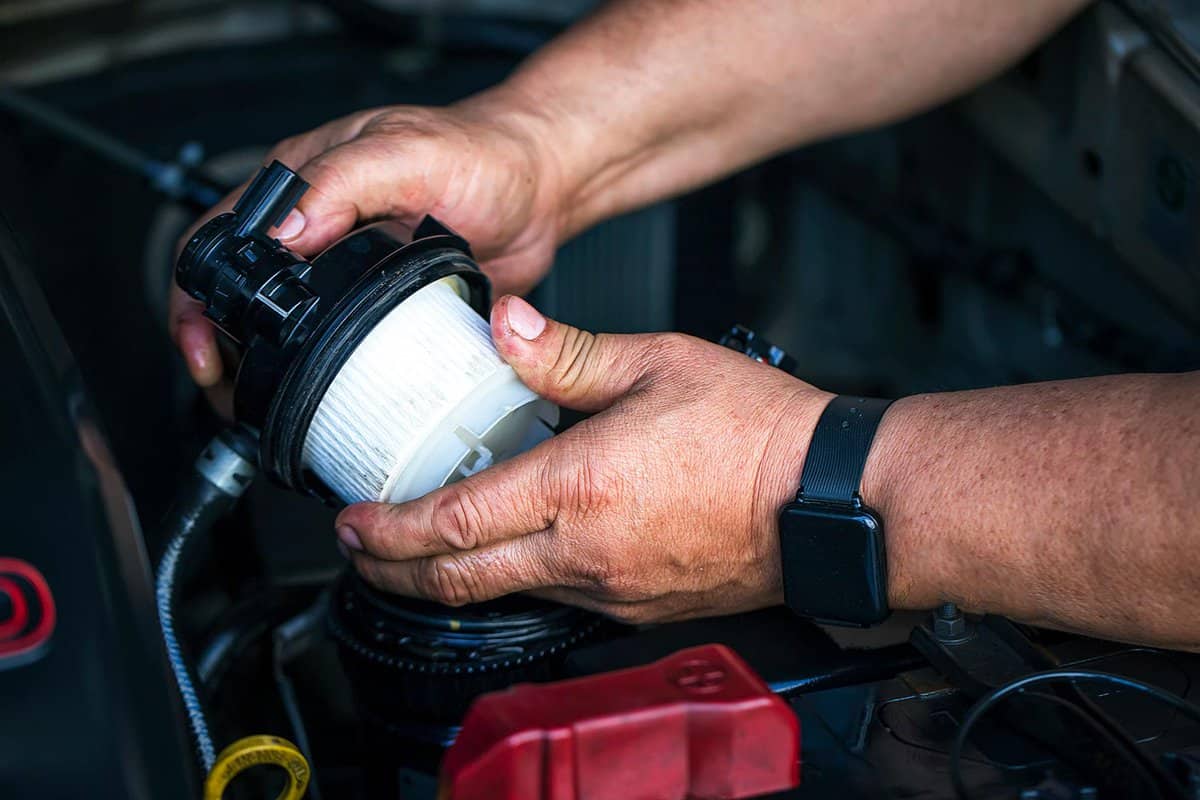
Get the fuel filter checked to see if it needs replaceing. If the fuel filter is already clogged, it can cause low fuel pressure in the tank. This will often result in a lean fuel condition and engine misfire, which causes the check engine light to come on. Have your mechanic check the fuel filter for any blockage.
Get scanned for lean conditions
As explained earlier, a car running in lean conditions often causes the engine to fire an alert to turn on the check engine light. When the engine runs in a lean condition, this typically means that the fuel tank has more oxygen versus fuel. However, this is not the only issue that causes a car to run lean.
Get your car scanned at your local repair shop to check if your vehicle is indeed running lean, causing the check engine light to come on. The mechanic can then look for issues that might be causing the engine to run lean.
Check if the fuel gauge is working properly
On some occasions, you might have enough fuel for your vehicle but the fuel gauge is not working properly. This often triggers the engine to turn the check engine light on even if there are no apparent issues happening. When this happens, the fuel gauge should be fixed and calibrated to ensure that it is reading the amount of fuel correctly.
Fuel pump performance evaluation
Have your car's fuel pump performance evaluated to see if there are any issues that are causing the check engine light to come on. When the fuel pump is weak, it also throws off the car's air and fuel ratio. The engine control module often triggers the engine light to come on during these situations. Sometimes, the vehicle's fuel pump also has electrical issues that can trigger the light as well.
Check Engine Light Comes On When Gas Is Full
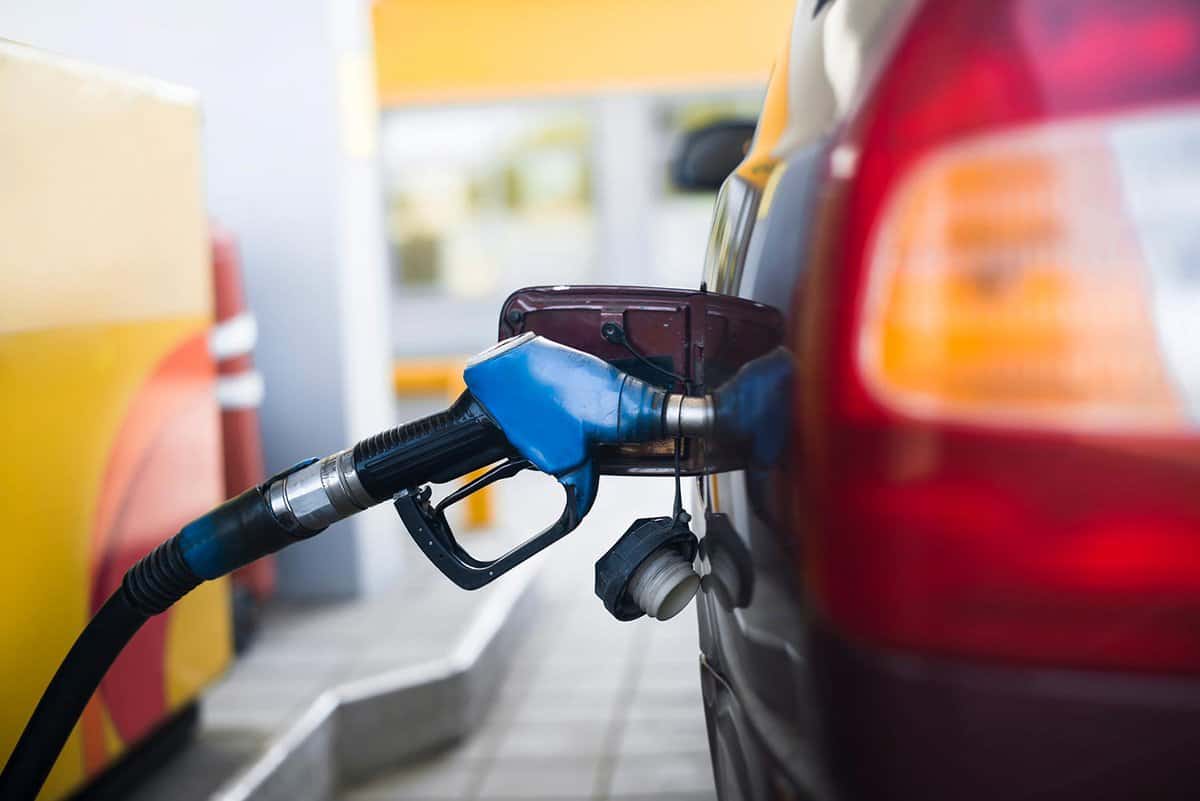
When the fuel is low, it is pretty obvious why there might be issues when the check engine light comes on. But what about when the car is full of gas, yet the engine light is still on?
If you've filled up your tank and your check engine light is still on, the issue might be coming from a gas line leak. It can also be triggered by a build-up of vapor inside the engine wherein the evaporative emission control system of your car detects excess harmful vapors in the fuel tank. This also triggers the check engine light to come on.
Ask your local repair shop to look for these issues if your check engine light is still on even after filling up the tank. The gas line leak should be immediately fixed. If there are no leaks, the vapor pressure problem may be caused by multiple issues, even as simple as changing an incorrectly fitting fuel cap.
Have a mechanic look at all possible issues to prevent further problems down the road. Your mechanic might also suggest a complete diagnosis, including a check engine light inspection to see all probable cases for your car.
Common Reasons Why The Check Engine Light Comes On
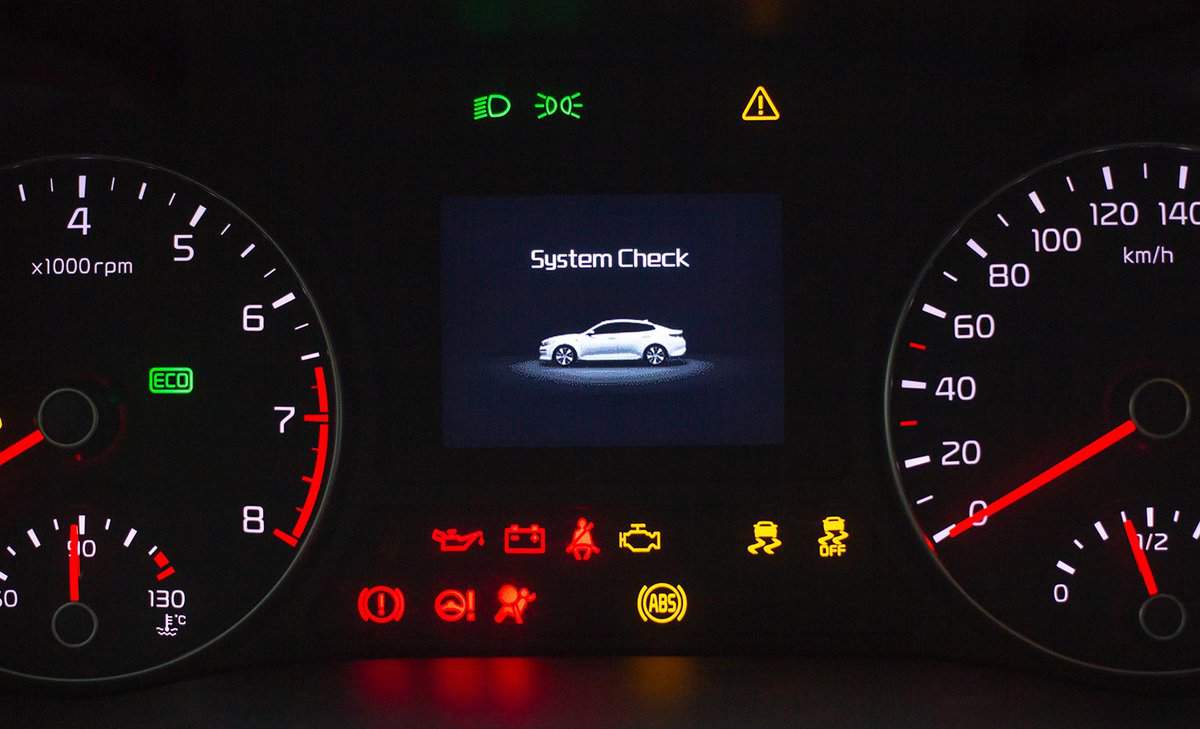
Aside from fuel tank issues, there are other reasons why the check engine light of your vehicle might come on. Here are some of them.
Faulty spark plugs and wires
Spark plugs fire up the car's engine, and the wires deliver the signals to make this happen. When these two are faulty, the car engine treats this as an issue, which is why you'll often see the check engine light come on. Engine performance falls with faulty plugs or wires, causing engine misfires.
Damaged catalytic converters
Catalytic converters convert dangerous carbon monoxide from the vehicle and into carbon dioxide, which can be released through emissions. If the vehicle's catalytic converters are having issues, the check engine light can come on, and you need to get the problem fixed immediately. A damaged converter can cause your car to run hotter than usual and lower fuel economy.
Dirty mass airflow sensor
This sensor detects the amount of air that is entering your fuel tank, which then determines the amount of fuel that is needed to keep the engine running well. If the mass airflow sensor of your vehicle is dirty or faulty, it can cause an error in detecting the airflow. This will usually trigger the check engine light to come on.
Faulty oxygen sensors
Similar to the mass airflow sensor, oxygen sensors are also important because they check the amount of unburned oxygen that comes out of the exhaust. This sensor monitors the fuel consumption of the vehicle. If the oxygen sensors are faulty, the engine often triggers this as an issue because it can also directly affect other parts like the catalytic converter and spark plugs.
Overheating
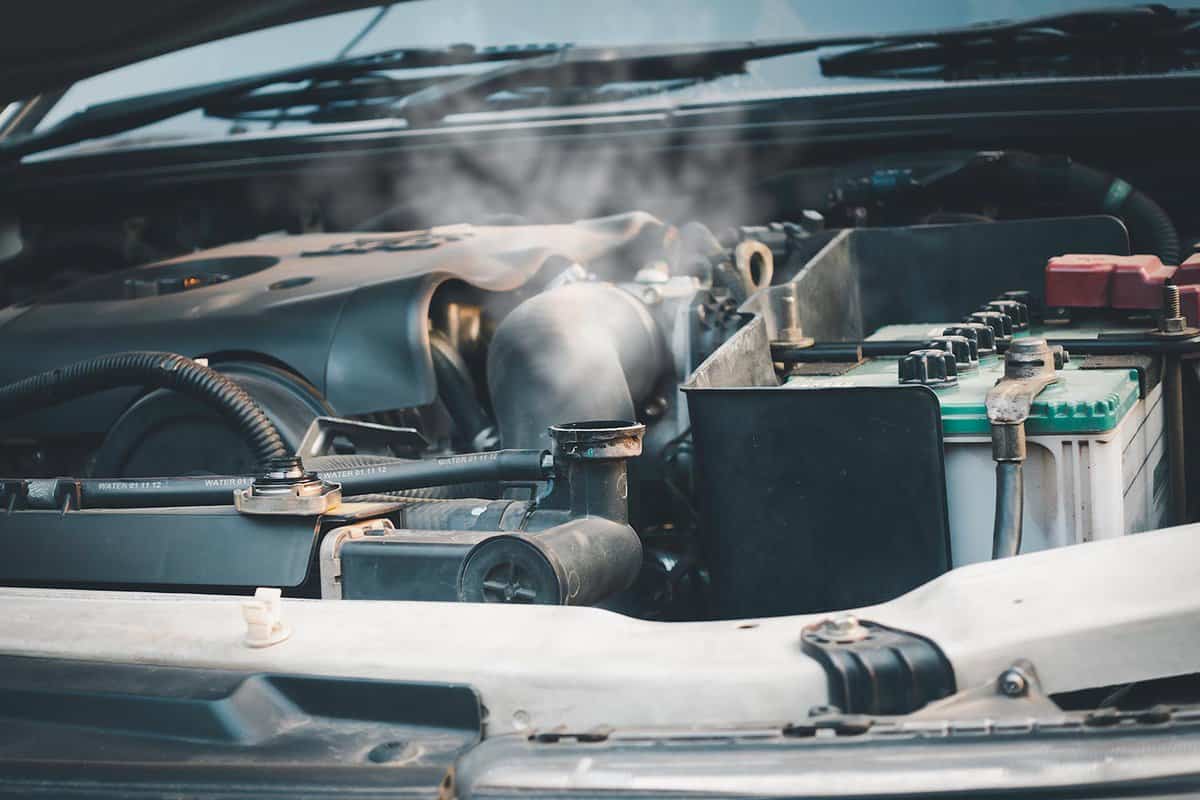
When the engine overheats, this is an obvious distress call about multiple issues inside the engine. You'll automatically see the check engine light come on when the vehicle overheats, along with other visible signs like a high-temperature reading on the gauge or smoke coming from under the hood. Get the car checked immediately when this happens.
Final Thoughts
The check engine light might come on from time to time, but always make sure to bring your car in for a diagnosis and check-up if you see it pop up on your dashboard.
Protect your vehicle from further damage by fixing the issues right away. Even it it's just a minor issue (and hopefully not a major one), always pay attention to the light to make sure your car is safe to drive.
Are you looking for more information about why your check engine light is on? Look no further, because we've got some great topics for you:
Can Hot Or Cold Weather Cause The Check Engine Light To Come On?
Can I Drive a Car with the Check Engine Light On?
